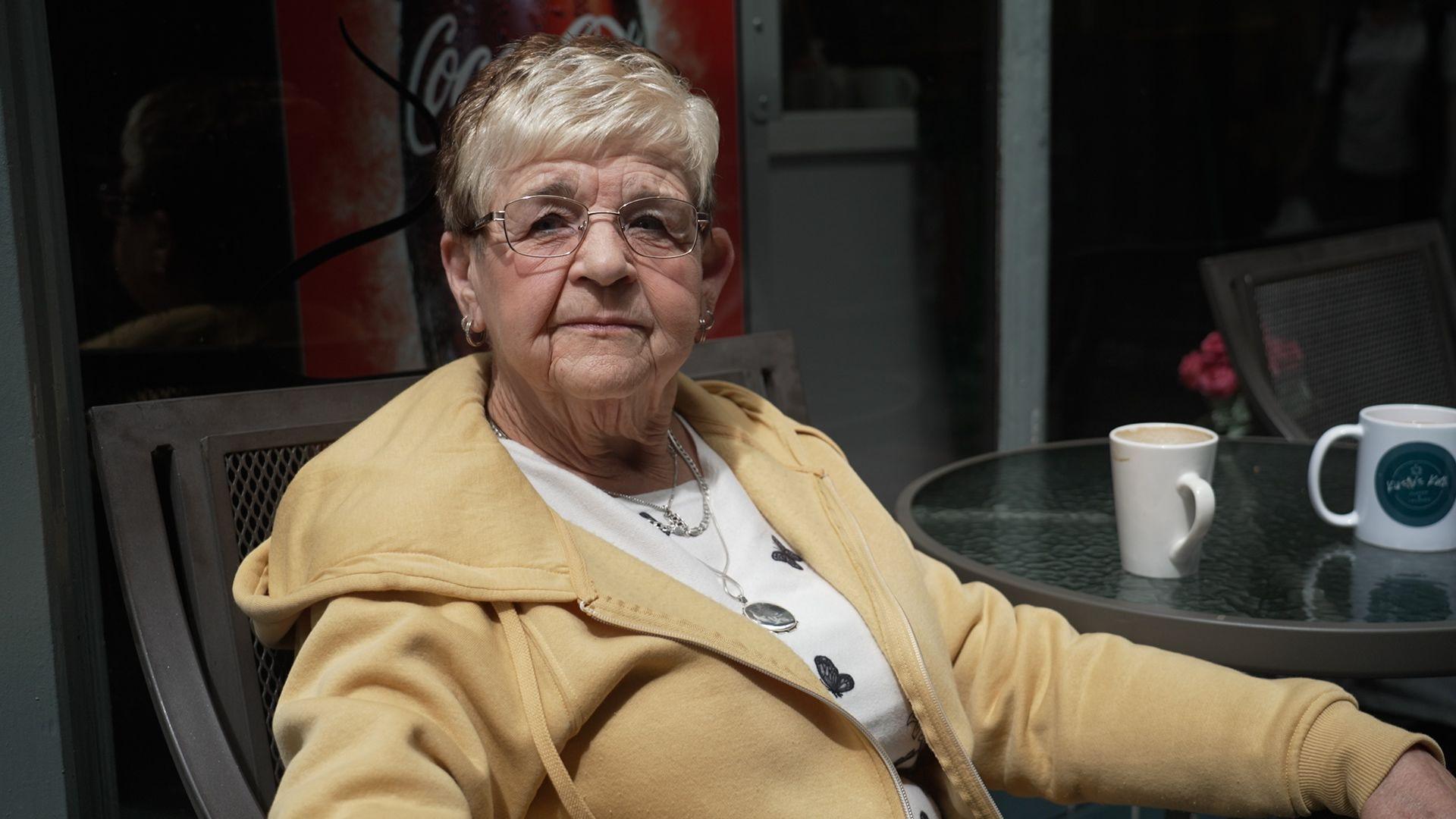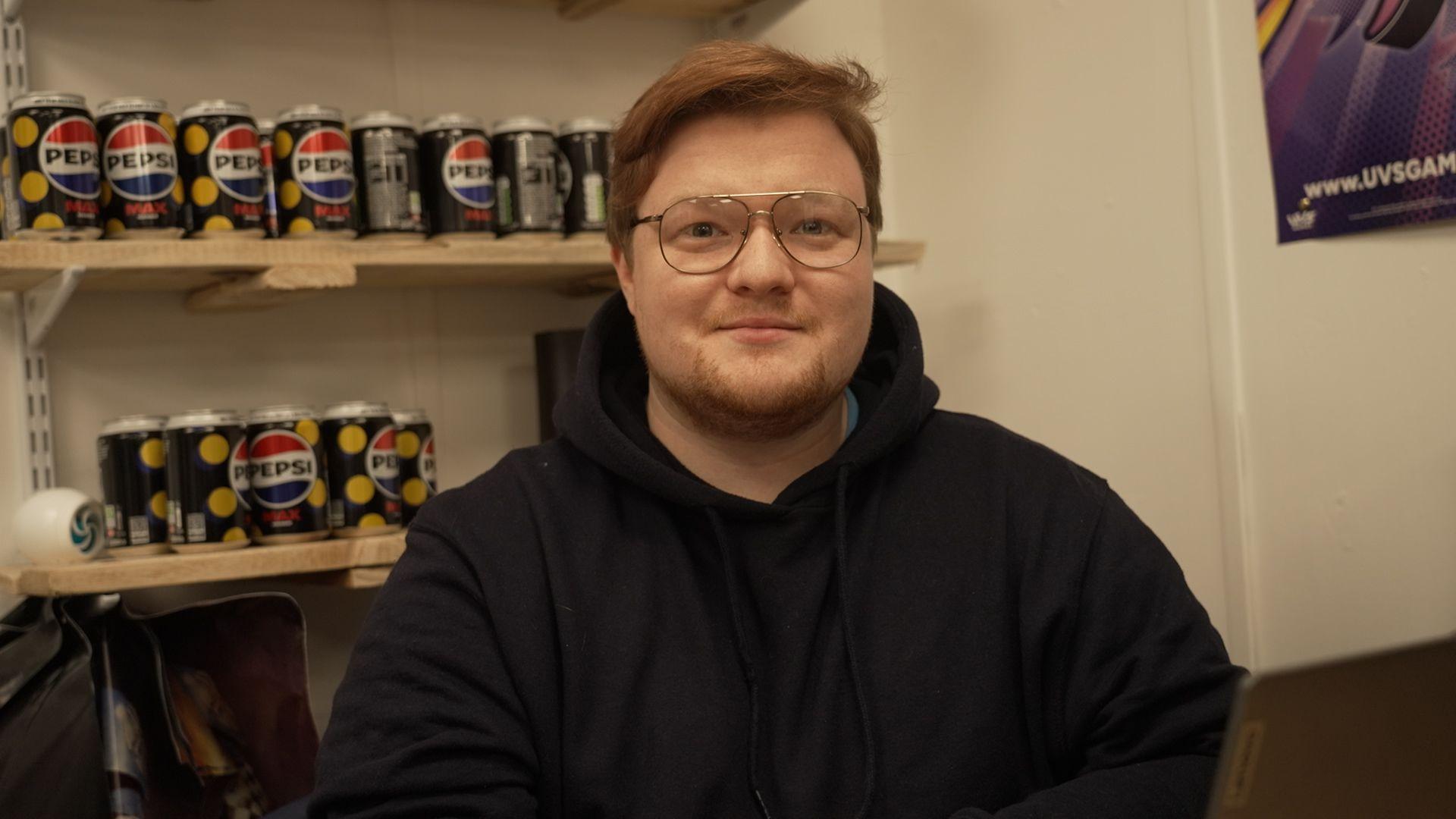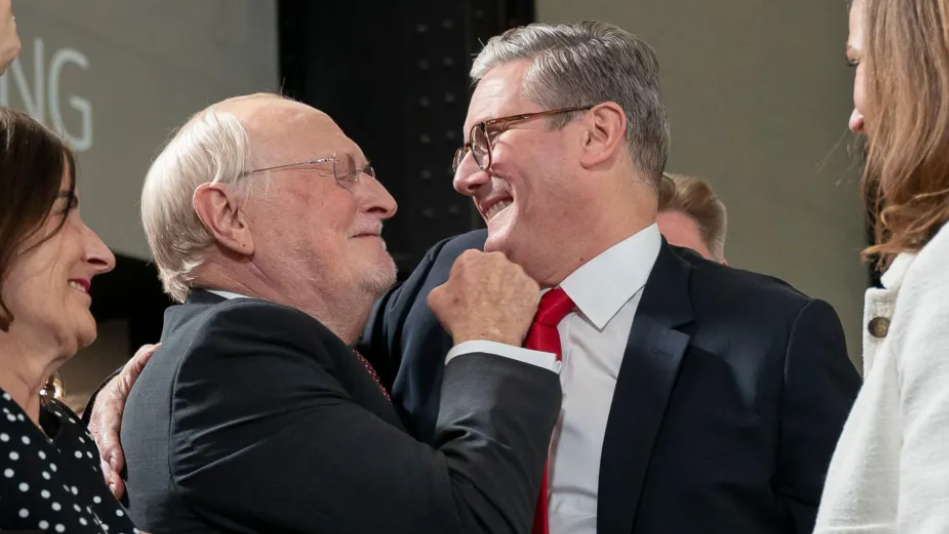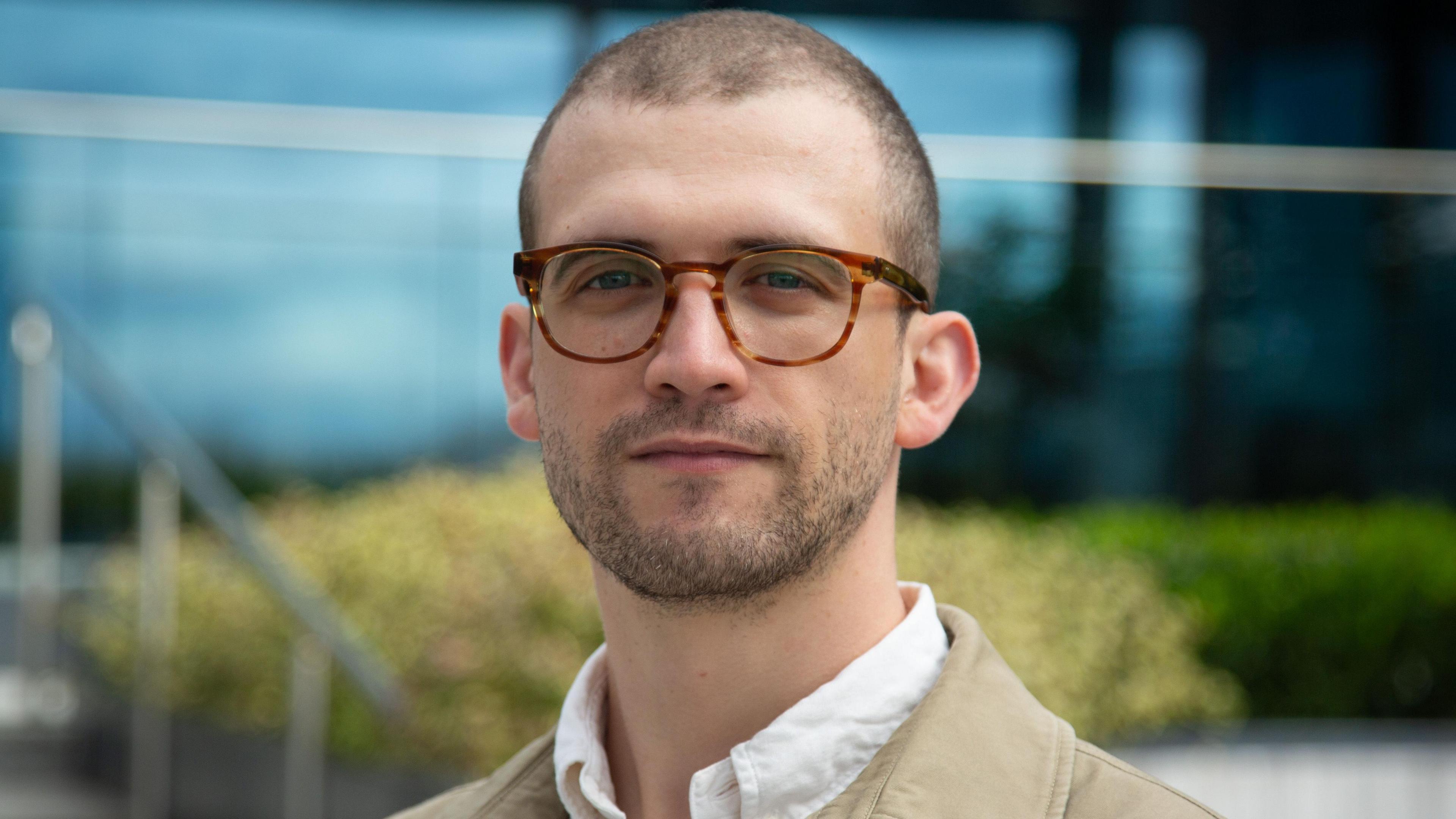Low turnout as voters feel 'forgotten' by election

Barbara said she does not feel any party in power will make much change
- Published
People living in the part of Wales with the lowest voter turnout for the general election say they feel "forgotten" by politicians.
Things like feeling their vote would not affect their lives or make a difference to the area were some of the reasons given by people in Abertillery.
The town sits in the Blaenau Gwent and Rhymney constituency, which had the lowest voter turnout in Wales at 42.7%.
The 4 July election saw only 56% of voters fill out their ballot papers in Wales, compared with 60% across the UK.
The biggest Welsh challenges in Labour's inbox
- Published6 July 2024
Senedd voter turnout worries remain after 25 years
- Published7 May 2024
General election 2024 in maps and charts
- Published6 July 2024
In Abertillery Arcade, home to shops and cafes, Barbara Burden, 76, and Alan Johnson, 72 spoke to BBC Wales Politics while enjoying a mid-morning cup of tea. Neither voted in the election.
Barbara said: "My father was a proper Labour man. He always voted for Labour and he'd say to me 'women fought for you to have the vote', so you should vote - but I haven't for a few elections now."
Both said they felt their votes wouldn't make a difference to them or the area.
General election: Why are fewer people in Wales voting?
"We want to see what Labour do first, see what it'll do for Abertillery - then I may vote in the next one," said Alan.
Elaine Sandra Curtis, who was shopping in the town, said she did vote.
"I voted for change, but whether there will be change in the valleys - that's another question," she said.
She said the area had been forgotten by politicians.
"I was waiting for candidates on my doorstop, I didn't see a soul."
One reason voter turnout was low, she said, could have been due to the fact many may have assumed it was a safe Labour seat.
Joshua Hill runs Hearthside Games which is based in the arcade. He said he started the business last year because it was easier to set up his own business rather than finding a job in the area.
He said: "I did vote as I think it's important to show how you feel, but it is difficult here because it feels like no one in the area cares."
Joshua said wasn't surprised to hear turn out in the was low.
"A lot of people feel it doesn't matter who you vote for because no one cares about these areas anyway, we're rural and out the way, and kind of get left out."
Samuel Hale, 21, was also in the game store and said he decided not to vote.
"If I'm honest I wasn't entirely sure who to vote for, and I'm not shocked voter turnout was low here. There's not much around here, it's out of the way."

Joshua said it's easy for people in places like Abertillery to feel left behind by politics
Earlier this week former Labour leader Neil Kinnock said the low turnout in parts of Wales in last week's general election was "appalling".
Labour's vote share in Wales dropped from 40% to 37%, which Lord Kinnock said the party was "deeply concerned" about.
Despite some people telling us they didn't think their vote would make a difference, there were some tight margins between candidates in Wales which made every vote count.
The tightest was Clwyd North which saw Gill German for Labour win her seat by 1,196 votes.
Other constituencies that saw a close margin with less than 2,000 votes between the top two candidates were Llanelli, Mid and South Pembrokeshire, and Brecon, Radnor and Cwm Tawe.

Welsh former Labour leader Neil Kinnock said poor turnout in Wales to vote was "appalling"
Dr Jac Larner, a lecturer in politics at Cardiff University, said there are several insights which can determine why voter turnout may have been lower this year.
"Competitive election turnout is higher, so when people think their vote is going to really help decide the outcome. We did see this reflected in Wales where there were competitive constituencies," he said.
"The other thing is when there is a big ideological difference between parities, where people think there could be big change - tends to lead to higher turnout.
"The general perception was that there wasn’t a big difference in what the main parties are offering."

Dr Jac Larner says voter turn out is a basic measure of accountability and acceptance in politics
He said just because lots of young people may be politically engaged, they may not be voting.
"Many young people have political participation like protests, signing petitions or writing to politicians.
"But in general it’s true that young people don’t see voting as a core way of getting things done."
The next Senedd election will be held in 2026.
Marking 25 years of devolution in May, senior Welsh politicians have said they are concerned about voter turnout for it too.
But Dr Larner said the next Senedd election may actually be more competitive than ever.
"We may see a convergence between Westminster turnout and Senedd turnout, similar to what we’ve seen in Scotland.
"As more people have thought Holyrood is important to Scottish parliament, the turnout lifted up there. And that is a trend we're seeing over in Wales."